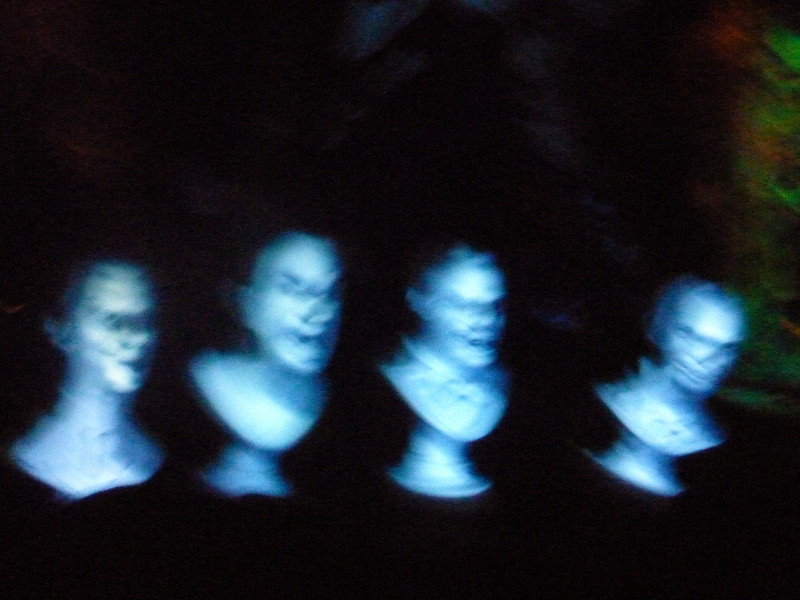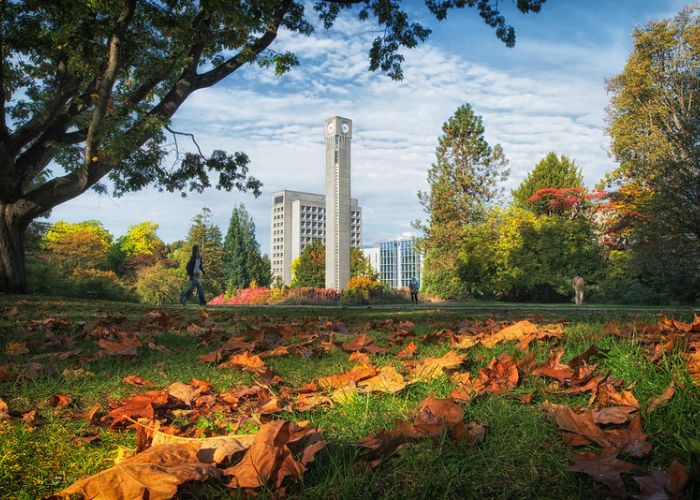The Department of Central, Eastern, and Northern European Studies is thrilled to welcome our incoming Department Head, Dr. David Gramling, who will begin the position on January 1, 2021. Read the interview below to get to know our new colleague.
First of all, welcome to UBC and to CENES! We’re so excited that you’re joining us as a colleague and Head! How are you feeling about your new position? What are you excited about?
David Gramling: Thank you so much! And thank you for the UBC hat you got me last year on my visit, which I’ve been wearing now for a year! I’m sincerely thrilled to be joining this community. My first intention, I think, remains the same as it was when I applied for the position: to be a good newcomer to UBC and this region. That means getting to know faculty and staff colleagues and students in—and often far beyond—the Department, learning what my obligations are as a guest working on unceded Musqueam territory, and then listening to the powerful, difficult questions people are already asking across the University, and in this place. It excites me to be beginning work at a Canadian university, with a strong sense of responsibility to the complex public good of today and the future. I’m so happy the search committee for this position was quite large, because that means that I’ve already had a chance to interact meaningfully with folks from all the programs in CENES, from other programs on campus, from staff, faculty, administration, and students. Their hospitality has been wonderful.
Could you tell us a little about your research? How would you describe yourself as a researcher? What questions are you most interested in?
DG: For at least ten years, I’ve been trying to understand the hidden impacts of monolingualism—in public life, knowledge-making, literature and film, culture, community, institutions, and society. This has taken me on kind of a pilgrimage through a number of fields: literature, applied linguistics, health care and medicine, refugee law and policy, additional language learning, history, disability studies, dance, and political theory. It’s taken all these fields to give me a sense for what monolingualism is, and what it does—for the benefit of some people and at the expense of others. Mostly, these days, I’m trying to figure out what the middle-term future horizon is for human multilingual experience—say around 2042, when I’m retiring—by which point we’ll likely be starting to really experience the implications of Artificial Intelligence (AI) and “Deep Learning” processes on how we interact with one another as people across cultures, languages, and cosmologies. I just don’t think we have much of a grasp on that picture yet—the future of multilingual meaning-making—but the deep consequences of this technological transformation are already being subtly felt around us.
What are some of the projects you’ve worked on in the past? What are you working on right now?
DG: Over the years, some amazing people have brought me into their orbit, where I’ve been able to work in a sustained way on some exhilarating projects—in Scotland, Palestine, Luxembourg, Belgium, Ghana, Sweden, and elsewhere. I love an improbable, courageous, risky idea, because the outcomes are often the most transformative and nourishing. I got to write a book with my brother (a palliative care physician) in which we listened to hundreds of end-of-life conversations between physicians, families, and patients, using the tools of Conversation Analysis; this was risky because such interdisciplinary methods are still rare in the medical communication research. Then, with two historians, I got to write a book about “linguistic disobedience,” the ascendancy of Donald Trump, and his reckless and abusive way of speaking. We subtitled that book “restoring power to civic language” and it was a kind of call to action to care for language in authoritarian times. And farther back, I got to co-edit two major sourcebooks about labour migration to Germany from 1955 to 2010. All of these projects transformed me from inside out, helped me build new transnational communities of knowledge, and showed me new reasons to believe in the purpose of public, independent, critical universities.
We know you’re planning to introduce some new classes that focus on your research area to the CENES offerings. How would you describe them?
DG: After writing two, maybe three books on multilingualism and monolingualism, I still feel like a beginner in this area every time I enter a new classroom with new students. The courses I hope to be teaching soon in CENES on “becoming multilingual” are designed to help students deepen and sharpen their grasp of what it means to be a practitioner of language(s) in 2020—whether monolingual, multilingual, or otherwise. And all students are welcome; they don’t need to speak any particular additional languages in the conventional sense of the word language. “Language” can mean the repertoire of dance, or fishing, or cooking, or music. I can’t wait to hear what experiences, desires, and backgrounds students bring to these classes, and what we’ll be able to build together out of our shared and divergent experiences.
Vancouver will be a big change from Arizona! Are you ready for the rain? I know you’ve spent some time in the Pacific Northwest before. Are you looking forward to returning?
DG: My new dean at UBC told me to bring a raincoat, and I had to think for a minute: what’s that? Down where I’ve been working over the last ten years, on Tohono O’odham territory in Southern Arizona, we have monsoon seasons twice a year. But when that happens, we all run inside and hide until they’re over. Even a light sprinkle makes people scamper inside at the first drop. We even avoid the rare puddles on the sidewalk, in a very particular Southern Arizona way. So, of course, when I visited UBC in February of last year, I was falling all over the place, in my dress shoes, in the snow. I think Prof. Hallensleben had to help me out of a snowbank once! So, yes, there will be some adjustments I’ll have to make. New boots, etc. But, honestly, the place I feel the most at home in the world is Seattle, where I moved in the late 1990s, so I’m excited to return to the Pacific Northwest and make Vancouver home.
What are some of the things that you hope to do in CENES? Any big plans you’d like to talk about?
DG: Central, Eastern, and Northern Europe means, by my count, 33 countries and even more languages—many more, when you add all of the languages and cultures people have brought from everywhere else in the world. This is an extraordinary and wonderful puzzle—as complex culturally and historically as is “Asia” or “the Americas.” We’re talking about thousands of years of history, during which whole countries have emerged, been erased, been reconstituted in new forms, experienced profound oppression, compromise, creativity, and community. And this is true in any ONE of the more than 30 polities that CENES represents. Ukraine, Lithuania, Switzerland, Moldova—these are incredibly complex places, pasts, and futures. The lands of Central, Eastern, and Northern Europe are Jewish and Muslim, nationalist and nationally indifferent, fascist and pacifist, queer and Indigenous, multilingual and Black, Arctic and Balkan. There’s no way of simplifying all of this into a neat and unified equation, and that’s why CENES needs such a strong community of teachers, learners, and researchers dedicated to curious inquiry, and to translating their insights into general public knowledge. So, my first plan, sincerely, is to figure out how to best uplift and amplify this complexity, to articulate why it matters, and to share that purpose in dialogue with colleagues across UBC. One key aspect of this, I think, will be developing a robust affiliation program with our friends and colleagues across campus.


